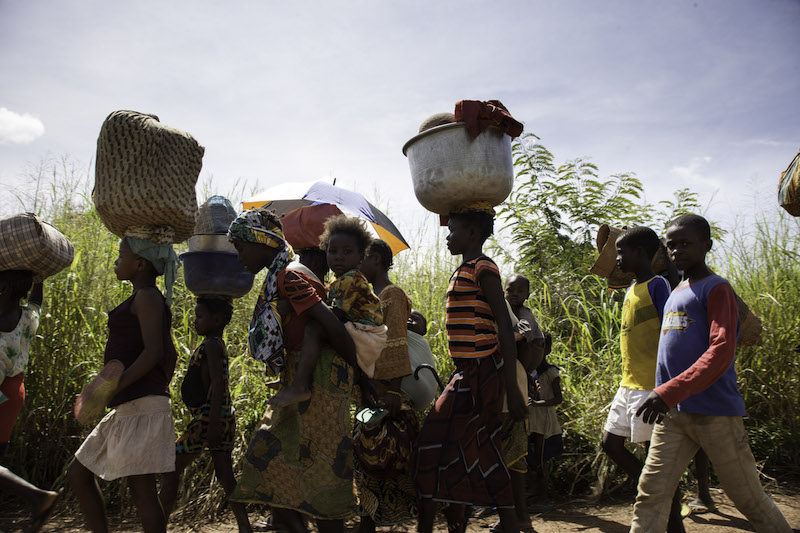Imagine a country’s Olympics team getting all mixed up. The swimmers end up in the sprint and the cyclists are handed javelins. There’s a wrestler on a horse and a gymnast with a tennis racket.
I’m no sports guru—but I still think that’s no recipe for success.
Right now, in response to the myriad faces of political turmoil in the world, activists are designing new collaborations or networks—but too often they end up in an approach that mismatches expertise and impact. There’s a truly inspiring surge of activism, and with that can come the drive for all to be involved everywhere. This is understandable. Whether it’s to shape Brexit in Britain or to tackle corruption in South Africa, when people or organizations volunteer their time for a coalition, how can we channel this energy to have the greatest possible impact for the cause?
"We are organization x, what can we do?"
The first question you ask when building or reshaping a network can determine whether you end up with the right talent having the most impact. Too often the starting point is: we are organization x, what can we do? On the face of it, that is a reasonable question, and the current political disorder means that a lot of organizations and individuals are asking it of themselves.
But an alternative approach to social entrepreneurship turns this question on its head. Guy Hughes, a young activist and founder of Crisis Action, reflected on the failure of collective action and saw that it started from the wrong question, an often ego-driven question: “What can I do?” He was inspired by a particularly memorable failure: in 2003, a million people took to the London streets to prevent the UK’s involvement in the invasion of Iraq. Scores of slogans on the placards. No common strategy. No impact.
A far more effective strategy, and the basis for collaboration, is to instead ask: “What needs to be done?” Invariably the answer is complex, requiring mutually reinforcing constellations of actors, each playing to their strengths, and each made stronger by the new links forged across and beyond the ecosystem. These clever coalitions don’t come about by accident: they need a low-ego strategic convener—a systems entrepreneur—to catalyze and coordinate smart, collective action. By building mini coalitions that work alongside one another, groups can avoid the Achilles heel of coalitions: descent to the lowest common denominator, sacrificing impact in pursuit of everyone agreeing.
Flickr/UNHCR/ B. Heger/CC BY-NC 2.0(Some Rights Reserved).
Conflict in Central African Republic reports massacres in the area, sending thousands of people fleeing.
To assume that role of the strategic convener requires that potential coalition members trust you: they must empower you to craft the constellations of action that will have the greatest impact. You can supercharge that trust with one radical decision: seek no public profile. If you work behind the scenes, you serve the cause, not the organizational ego. The idea—that a strategic convener acting behind the scenes to build clever coalitions can transform the impact of a network—led to a new social enterprise, Crisis Action. Indeed, this was an early model of systems entrepreneurship, an approach with a buzz around it now, as organizations and donors seek maximum impact from their networked collaborations.
We’ve tried and tested this model at Crisis Action. Our work with the best peacebuilding, humanitarian, and human rights organizations in the world has seen families protected by peacekeepers in Central African Republic (CAR), and Syrians receiving aid for the first time in years. For example, in CAR, following a coup in early 2013, horrific ethnic cleansing spread rapidly throughout the country, with mass atrocities being committed by both Muslim and Christian groups. Crisis Action and our human rights and humanitarian partners working on the ground identified that only a UN peacekeeping force could prevent the conflict from spiraling out of control. So we brought together a new coalition of CAR’s most influential religious leaders, Archbishop Dieudonné Nzapalainga, Imam Omar Kobine Layama, and Reverend Nicolas Guérékoyamé-Gbangbou, who straddled the religious and ethnic divide in the country. We took them to brief the UN Secretary-General Ban Ki-Moon, French President François Hollande, US Congress, EU Ambassadors and all 15 Security Council Ambassadors. We amplified their message for a Peacekeeping force in France’s Le Monde newspaper, the Washington Post, New York Times, Time, and CNN. Even President Obama quoted them in his speech to the UN. The Security Council subsequently authorized the deployment of a UN peacekeeping force to CAR and specifically paid public tribute to these faith leaders. Only six months earlier, senior UN officials had ridiculed the notion that the Security Council would approve a force to CAR, given its lack of geo-strategic importance. According to UN ambassadors, the faith leaders’ briefing to the Security Council had convinced them to act. We now know that the peacekeeping force has saved thousands of lives and prevented the violence from escalating into all out genocide.
As we all grapple with the current political turmoil, the applications of clever coalitions are endless. Based on our experiences in this area, we created Creative Coalitions: A Handbook for Change, to help others pick up this idea and apply it in their work. To take on the tumult of today so we can leave the world a fairer place, we all need to be at our best. Each of us needs to devote our energy where we can have the greatest impact. Let’s get the hurdlers hurdling and the canoeists canoeing, and let’s see how much more change we can all make.

